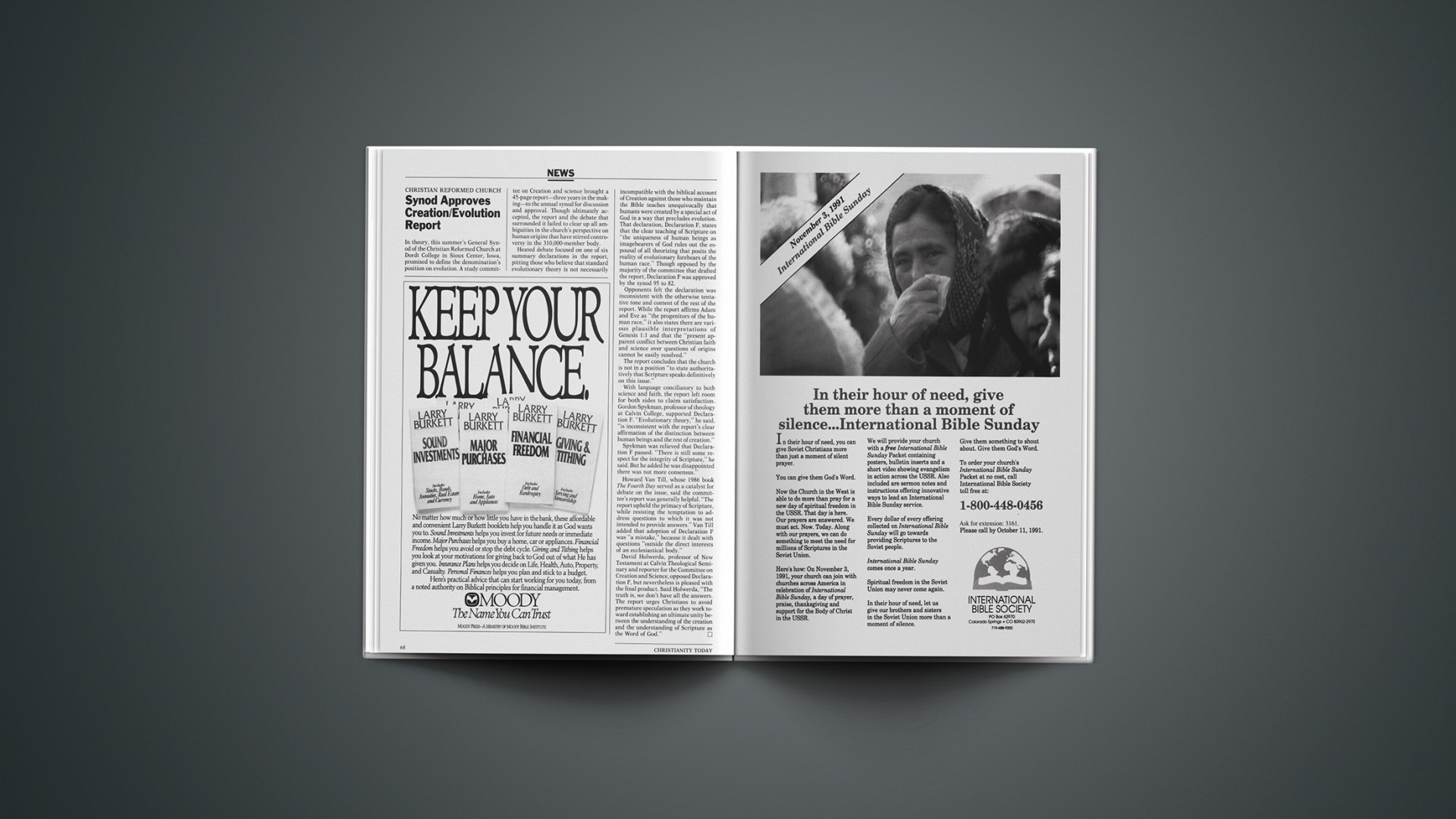In theory, this summer’s General Synod of the Christian Reformed Church at Dordt College in Sioux Center, Iowa, promised to define the denomination’s position on evolution. A study committee on Creation and science brought a 45-page report—three years in the making—to the annual synod for discussion and approval. Though ultimately accepted, the report and the debate that surrounded it failed to clear up all ambiguities in the church’s perspective on human origins that have stirred controversy in the 310,000-member body.
Heated debate focused on one of six summary declarations in the report, pitting those who believe that standard evolutionary theory is not necessarily incompatible with the biblical account of Creation against those who maintain the Bible teaches unequivocally that humans were created by a special act of God in a way that precludes evolution. That declaration, Declaration F, states that the clear teaching of Scripture on “the uniqueness of human beings as imagebearers of God rules out the espousal of all theorizing that posits the reality of evolutionary forebears of the human race.” Though opposed by the majority of the committee that drafted the report, Declaration F was approved by the synod 95 to 82.
Opponents felt the declaration was inconsistent with the otherwise tentative tone and content of the rest of the report. While the report affirms Adam and Eve as “the progenitors of the human race,” it also states there are various plausible interpretations of Genesis 1:1 and that the “present apparent conflict between Christian faith and science over questions of origins cannot be easily resolved.”
The report concludes that the church is not in a position “to state authoritatively that Scripture speaks definitively on this issue.”
With language conciliatory to both science and faith, the report left room for both sides to claim satisfaction. Gordon Spykman, professor of theology at Calvin College, supported Declaration F. “Evolutionary theory,” he said, “is inconsistent with the report’s clear affirmation of the distinction between human beings and the rest of creation.”
Spykman was relieved that Declaration F passed. “There is still some respect for the integrity of Scripture,” he said. But he added he was disappointed there was not more consensus.”
Howard Van Till, whose 1986 book The Fourth Day served as a catalyst for debate on the issue, said the committee’s report was generally helpful. “The report upheld the primacy of Scripture, while resisting the temptation to address questions to which it was not intended to provide answers.” Van Till added that adoption of Declaration F was “a mistake,” because it dealt with questions “outside the direct interests of an ecclesiastical body.”
David Holwerda, professor of New Testament at Calvin Theological Seminary and reporter for the Committee on Creation and Science, opposed Declaration F, but nevertheless is pleased with the final product. Said Holwerda, “The truth is, we don’t have all the answers. The report urges Christians to avoid premature speculation as they work toward establishing an ultimate unity between the understanding of the creation and the understanding of Scripture as the Word of God.”









